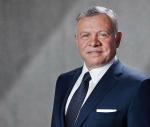You are here
Palestine needs freedom, not prosperity
May 22,2019 - Last updated at May 22,2019
I still vividly remember what a World Bank official once told me, “What Palestine needs is the end of occupation and restrictions for its economy to boom. You are not Bangladesh with 200 million mouths to feed, you have well-educated population and you are near major world markets, all you need is to be able to move people and goods around, and within five year your economy would be doing just fine.”
I remember this conversation as news came out of a pending US effort to hold a two-day economic ‘workshop’ in the Bahrain capital of Manama on June 25 and 26. The joint American-Bahraini press release said that finance ministers and not foreign ministers will be invited. To be fair, the press release attempted to reassure sceptics that they understand that you cannot have economic progress without political progress, nevertheless the decision was made to roll out Jared Kushner’s economic plan first and postpone the political plan till later. Economic peace was an idea first introduced by current Israeli Prime Minister Benjamin Netanyahu and roundly rejected as a nonstarter by Palestinians and international experts.
An economic plan without a political plan in essence means that we are back to the abhorrent concept of a “benevolent occupation”. The Americans appear to have wasted everyone’s time and froze all other efforts, especially Europeans, and now the US political plan, according to the front-page headline in the Palestinian daily Al Quds, has been postponed.
It is also very ironic that US President Donald Trump’s administration, which defunded a UN agency providing humanitarian support to Palestinians, ended USAID funding to help build Palestinian infrastructure projects and abruptly cut off aid to hospitals in Jerusalem providing badly-needed cancer treatment to Gaza children, is not trying to convince others to invest in Palestine!
A discussion took place on Twitter about the difference between aid and investment. I argued that investment has many more requirements than aid. Countries can decide to make money available based on their own decision without any conditions, whereas investment requires a welcoming investment environment, a stable political regime and the basic ability to move people and goods.
While the Americans insist that a political plan is coming, one can already notice that a political process has already taken place and this process was illustrated by the fact that the Palestinian leadership was not even consulted about an event that is supposed to discuss issues of concern to Palestinians. The idea that some Palestinian businessmen are invited, while the Palestinian leadership is cold shouldered, shows a high degree of political naiveté on the part of the Kushner/Greenblatt/ Friedman team.
Palestinians, instead, are paying attention to a different economic track. Prime Minister Mohammad Shtayyeh is putting his effort, along with serious business people, on a plan to gradually separate from Israel and to strengthen local communities to become more self-sufficient. Shtayyeh has announced that a gradual separation from the Israeli currency is being considered, and stronger economic and political ties with nearby Arab countries, such as Jordan and Egypt, are being considered.
When efforts to draw up a new vision and “the ultimate deal” were being considered, Trump’s officials said that they are looking for new ideas and new ways, since the old ways have failed. Well, one of the biggest old failures has been the idea of bypassing the legitimate Palestinian leadership. At one time, peace envoys tried to bypass Palestinian leaders with Arab leaders and that failed when all Arab leaders recognised the Palestine Liberation Organisation (PLO). The Israelis also tried to bypass the legitimate Palestinian leadership, through what was called the Village Leagues, and that failed miserably. The Americans soon realised that they need to deal with the PLO, and in 1988, they began the first direct talks with the Palestinian leadership in Tunis. It would take the Israelis a few years to do the same in the 1993 exchange of letters of recognition and the famous Yasser Arafat-Yitzhak Rabin handshake on the White House lawn. If Jared Kushner’s team wants to avoid past mistakes, one place to start is to deal with the Palestinian leadership, and tackle Palestinian national rights rather than attempt to delegitimise Palestinian nationalism.













